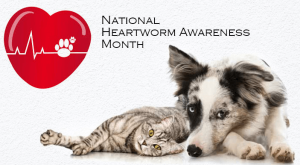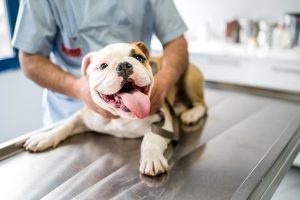Posts Tagged ‘new puppy’
Love Your Pet’s Skin & Coat: What Flakes, Itching, and Dull Fur Are Really Telling You
 At Olsen Veterinary Clinic, we often say that your pet’s skin and coat are a window into their overall health. A soft, shiny coat and comfortable skin aren’t just cosmetic—they’re signs that things are working well on the inside. When flakes, itching, redness, or dull fur show up, your pet may be trying to tell you something important.
At Olsen Veterinary Clinic, we often say that your pet’s skin and coat are a window into their overall health. A soft, shiny coat and comfortable skin aren’t just cosmetic—they’re signs that things are working well on the inside. When flakes, itching, redness, or dull fur show up, your pet may be trying to tell you something important.
Let’s break down what common skin and coat changes really mean, what role allergies and nutrition play, and when these issues may signal something deeper.
Why skin health matters more than you think
Your pet’s skin is their largest organ and their first line of defense against the outside world. Healthy skin helps regulate body temperature, protect against infection, and keep allergens and parasites at bay.
When skin health is compromised, it often affects more than just comfort. Chronic skin issues can lead to:
- Persistent itching and pain
- Secondary infections
- Hair loss or thickened skin
- Changes in behavior, appetite, or energy
That’s why skin and coat problems are one of the most common reasons pets visit our clinic—and one of the most important to address early.
Flakes, itching, and dull fur: what they’re really saying
Flaky skin (dandruff)
Occasional dryness can happen, especially in winter or after bathing. But ongoing flakes may point to:
- Poor nutrition or fatty acid deficiencies
- Environmental dryness
- Underlying allergies
- Hormonal imbalances or metabolic disease
Constant itching or licking
If your pet can’t stop scratching, chewing paws, or rubbing their face, itching is more than a nuisance—it’s a red flag. Common causes include:
- Environmental allergies (pollen, dust mites, mold)
- Food sensitivities
- Fleas (even one bite can trigger intense reactions)
- Skin infections caused by bacteria or yeast
Dull, brittle, or thinning fur
A coat that has lost its shine or sheds excessively may be linked to:
- Poor-quality diet or improper nutrient absorption
- Chronic inflammation
- Hormonal conditions like hypothyroidism
- Long-standing skin disease
Your pet’s coat often changes gradually, so these signs can be easy to miss—until they’re impossible to ignore.
Allergies: a common but complex culprit
Unlike humans, pets often show allergies through their skin rather than sneezing or watery eyes. Allergies can be seasonal, year-round, or triggered by food ingredients.
Common allergy signs include:
- Itchy ears or recurring ear infections
- Red, inflamed skin
- Paw chewing or face rubbing
- Hot spots or recurring rashes
Allergies are rarely “one-size-fits-all.” Successful management often involves identifying triggers, reducing exposure, supporting the skin barrier, and sometimes using medication or therapeutic diets.
Nutrition: feeding the skin from the inside out
What your pet eats has a direct impact on their skin and coat. Even pets eating enough calories may still lack key nutrients for skin health.
Skin-supporting nutrients include:
- Omega-3 and Omega-6 fatty acids for inflammation control and shine
- High-quality protein for hair growth and repair
- Vitamins and minerals like zinc and vitamin E
Not all pet foods are created equal, and some pets need specialized diets to manage allergies or sensitivities. Supplements can help—but only when chosen carefully and used appropriately.
When skin issues signal something deeper
Sometimes skin and coat changes are the first visible sign of an internal medical condition. These may include:
- Thyroid disease
- Cushing’s disease
- Immune-mediated conditions
- Chronic infections
If skin problems are persistent, worsening, or accompanied by changes in thirst, appetite, weight, or behavior, it’s time to look beyond surface treatments.
When to see your veterinarian
You should schedule a veterinary visit if your pet:
- Scratches or licks constantly
- Has recurring ear or skin infections
- Develops bald patches, sores, or thickened skin
- Has skin issues that don’t improve with basic care
Early diagnosis leads to more effective treatment—and a much happier pet.
Our approach at Olsen Veterinary Clinic
At Olsen Veterinary Clinic, we take skin and coat concerns seriously. Our goal isn’t just to stop the itching, but to understand why it’s happening. We tailor treatment plans to your pet’s individual needs, which may include diagnostic testing, dietary changes, parasite prevention, allergy management, and long-term skin support.
Healthy skin means better comfort, better health, and a better quality of life for your pet.
If you’ve noticed changes in your pet’s skin or coat, we’re here to help—because loving your pet means listening to what their body is telling you. Contact us today with questions and concerns.
Winter Care for Pets: How to Keep Your Furry Friends Safe and Cozy
 As temperatures drop and the winter season settles in, it’s important to ensure your pets are prepared for the cold weather ahead. At Olsen Veterinary Clinic, we want to help you protect your four-legged family members throughout these chilly months. From safe outdoor practices to holiday hazards, we’ve gathered some essential tips to keep your pets healthy, warm, and happy all winter long.
As temperatures drop and the winter season settles in, it’s important to ensure your pets are prepared for the cold weather ahead. At Olsen Veterinary Clinic, we want to help you protect your four-legged family members throughout these chilly months. From safe outdoor practices to holiday hazards, we’ve gathered some essential tips to keep your pets healthy, warm, and happy all winter long.
Bundle Up for Outdoor Time
Even pets with thick fur can feel the effects of winter.
🐾 Limit time outside — Prolonged exposure to cold temperatures can lead to hypothermia or frostbite. Quick walks and supervised play are best.
🐾 Dress for the weather — Short-haired dogs may need sweaters or jackets to retain body heat.
🐾 Protect the paws — Salt, ice, and cold pavement can irritate paw pads. Booties or pet-safe balms can help shield sensitive feet.
🐾 Wipe down after walks — Rock salt and antifreeze are toxic! Clean paws and bellies to stop pets from licking dangerous chemicals.
Create a Cozy Indoor Environment
Winter is the perfect time to make things warm and comfortable for your pets.
🔥 Provide warm bedding — Keep beds off cold floors and away from drafts.
🍽️ Stay on top of nutrition — Some pets may burn more calories staying warm. Ask us if diet adjustments are needed.
💧 Hydrate — Pets can dehydrate in winter, too! Ensure access to fresh, unfrozen water.
🐶 Keep them active — Indoor play, puzzle toys, and short training sessions help prevent winter boredom.
Holiday Safety Tips
The festive season can bring some unexpected risks for pets.
🎄 Decorations with caution
Tinsel, ribbons, and ornaments can be choking hazards. Keep cords and candles out of reach.
🍫 Watch what they eat
Chocolate, holiday sweets, table scraps, and alcohol are dangerous for pets. Remind guests not to feed your furry friends.
🌱 Avoid toxic plants
Mistletoe, holly, and certain types of lilies can be harmful if chewed or ingested.
🎁 Safe gift-giving
Opt for pet-friendly chew toys and avoid items that could splinter or break apart easily.
Car Safety Still Matters
Cold weather doesn’t eliminate vehicle dangers.
🚗 Never leave pets unattended in vehicles
Cars can act like refrigerators, rapidly dropping to unsafe temperatures.
🐱 Check before you drive
Outdoor cats may seek warmth under your car. Tap the hood to be sure no one is hiding near the engine.
Schedule a Winter Wellness Check
Cold weather can aggravate arthritis, respiratory concerns, and other chronic conditions. A seasonal check-up at Olsen Veterinary Clinic can help ensure your pet is ready for winter.
We’re Here for You All Season Long
If you ever notice signs of frostbite, hypothermia, or sudden behavior changes, contact Olsen Veterinary Clinic right away. Winter can be a fun and cozy time for pets—with the right precautions in place!
📞 Call us today to schedule your winter wellness visit
🐾 Your pet’s health and comfort are our top priority.
Thanksgiving with Pets: The Do’s and Don’ts for Holiday Meals
 Thanksgiving is a time for gratitude, family, and of course, delicious food! While we love to include our furry friends in the celebration, it’s important to remember that not everything on the holiday table is safe for pets. At Olsen Veterinary Clinic, we want to help you and your pets enjoy a happy and healthy Thanksgiving together.
Thanksgiving is a time for gratitude, family, and of course, delicious food! While we love to include our furry friends in the celebration, it’s important to remember that not everything on the holiday table is safe for pets. At Olsen Veterinary Clinic, we want to help you and your pets enjoy a happy and healthy Thanksgiving together.
🐾 The Do’s: Safe Ways to Include Your Pets in the Feast
✅ Do share in moderation.
Small, plain portions of pet-safe foods can be a fun treat. Turkey meat (without skin or seasoning), plain green beans, carrots, or pumpkin puree are all healthy options — just keep portions small.
✅ Do keep their routine.
The excitement of guests and new smells can be stressful for pets. Stick to your pet’s regular feeding and walking schedule to keep them calm and comfortable throughout the day.
✅ Do create a quiet space.
If you’re hosting a large gathering, give your pet a quiet room to retreat to with their bed, water, and toys. This helps prevent anxiety and keeps them out of the kitchen chaos.
✅ Do secure the trash.
Thanksgiving leftovers can be tempting, but bones, string, and food wrappers can cause serious harm if swallowed. Make sure the trash is pet-proof and taken out promptly.
🚫 The Don’ts: Foods and Habits to Avoid
❌ Don’t feed turkey bones or skin.
Bones can splinter and cause choking or internal injuries. The skin is high in fat and may lead to pancreatitis, a painful and dangerous condition for dogs and cats.
❌ Don’t give foods with onions, garlic, or chives.
These ingredients, common in stuffing and gravy, are toxic to both dogs and cats and can cause serious digestive and blood problems.
❌ Don’t let them nibble on desserts.
Chocolate, xylitol (found in sugar-free treats), raisins, and grapes are all toxic to pets. Even a small amount can cause severe illness.
❌ Don’t forget about alcohol.
Even small sips of beer, wine, or cocktails can be dangerous for pets. Keep all drinks out of reach.
🐶 A Happy, Healthy Holiday
Thanksgiving can be a joyful experience for you and your pets when you plan ahead. Offer pet-safe treats, keep the dangerous foods off their plates, and stick to routines that make them feel secure.
If your pet gets into something they shouldn’t, contact Olsen Veterinary Clinic right away or reach out to the nearest emergency veterinary service. Quick action can make all the difference.
From all of us at Olsen Veterinary Clinic, we wish you and your furry family members a safe and wonderful Thanksgiving!
Celebrating The Responsibility Of Pet Ownership: What It Means to Be a Great Pet Parent
 Responsible Pet Ownership Month is actually in February, but at Olsen Veterinary Clinic, we believe now is the perfect time to reflect on the joy pets bring to our lives—and the responsibilities that come with caring for them. Being a great pet parent goes far beyond providing food and shelter. It means committing to your pet’s health, training, and overall well-being for their entire life.
Responsible Pet Ownership Month is actually in February, but at Olsen Veterinary Clinic, we believe now is the perfect time to reflect on the joy pets bring to our lives—and the responsibilities that come with caring for them. Being a great pet parent goes far beyond providing food and shelter. It means committing to your pet’s health, training, and overall well-being for their entire life.
The Responsibilities of Pet Ownership
1. Prioritizing Healthcare
Routine veterinary care is one of the most important aspects of responsible ownership. Just like people, pets need regular check-ups to stay healthy and catch issues early. Annual wellness exams, vaccinations, parasite prevention, dental care, and senior pet check-ups all play a vital role in ensuring your pet lives a long and happy life. Preventive care not only protects your pet but also helps avoid costly emergencies down the road.
2. Providing Proper Nutrition and Exercise
Feeding your pet a balanced diet appropriate for their age, breed, and health condition is key to maintaining good health. Pairing proper nutrition with regular exercise keeps your pet physically fit and mentally stimulated. Daily walks, playtime, and enrichment activities can help prevent obesity and reduce behavioral issues.
3. Training and Socialization
Good behavior doesn’t happen overnight. Training and socialization are essential for your pet’s safety and happiness. Teaching basic commands, house manners, and positive behavior builds trust and strengthens your bond. Socializing your pet with other animals and people helps prevent fear, anxiety, and aggression, making them a well-adjusted member of the family.
4. Providing Love and Companionship
Pets thrive on love, attention, and companionship. They depend on us not just for their physical needs but also for emotional well-being. Spending quality time together through play, snuggles, or quiet companionship enriches both their life and yours.
5. Commitment for a Lifetime
Welcoming a pet into your home is a lifelong promise. Whether it’s a puppy, kitten, or senior rescue, being a responsible pet parent means committing to their care through all stages of life. This includes adjusting to their changing needs as they age.
The Reward of Responsibility
Responsible pet ownership requires dedication, but the rewards are immeasurable. In return for your care and commitment, pets offer unconditional love, loyalty, and companionship. At Olsen Veterinary Clinic, we are here to support you every step of the way with preventive care, health guidance, and resources to help you be the best pet parent you can be.
Take a moment to reflect on your role as a pet parent and celebrate the bond you share with your furry family members. Together, let’s continue building a world where every pet is healthy, happy, and loved.
Back to School Blues: Helping Pets Adjust to Schedule Changes
 As the summer days wind down and families gear up for a new school year, pets often find themselves facing sudden and unfamiliar changes in their daily routines. The shift from long, playful summer days to quieter, emptier homes can trigger confusion, stress, or even separation anxiety in our furry companions.
As the summer days wind down and families gear up for a new school year, pets often find themselves facing sudden and unfamiliar changes in their daily routines. The shift from long, playful summer days to quieter, emptier homes can trigger confusion, stress, or even separation anxiety in our furry companions.
At Olsen Veterinary Clinic, we understand how schedule changes can impact your pet’s mental and emotional well-being. Just like humans, pets thrive on routine, and any disruption—especially one as significant as the back-to-school transition—can lead to behavioral changes. Fortunately, with a few thoughtful strategies, you can help ease your pet into the new normal.
1. Gradually Adjust the Routine
Before the school year begins, start gradually shifting your pet’s schedule. Begin feeding, walking, and playing with them at times that will align with the new routine. This helps your pet adjust to the change without feeling overwhelmed when it happens all at once.
2. Create a Consistent Daily Schedule
Consistency builds comfort. Try to keep feeding times, potty breaks, and walks as consistent as possible. Even if family members are on the go, assigning pet care responsibilities ensures your pet gets the attention and structure they need each day.
3. Provide Morning and Evening Attention
Your pet may feel lonely during the day, so be sure to give them quality time in the mornings before everyone leaves and again in the evenings when the house is full again. Whether it’s a morning walk or evening cuddle, that bonding time is essential for emotional reassurance.
4. Keep Pets Stimulated While Home Alone
Prevent boredom and anxiety by leaving safe, interactive toys or treat puzzles for your pet. Calming music, pet-safe videos, or a window with a view can also keep them entertained while you’re away.
5. Practice Short Departures
In the weeks leading up to school, practice leaving the house for short periods so your pet gets used to being alone. Gradually increase the time to build your pet’s comfort and confidence with being alone during the day.
6. Consider a Pet Companion or Daycare
If your pet struggles with loneliness, consider introducing a companion (another pet, if feasible) or enrolling them in a trusted pet daycare a few times a week. Socialization and activity can help reduce stress.
7. Watch for Signs of Anxiety
Some pets may develop separation anxiety or other stress-related behaviors. Watch for signs like destructive chewing, excessive barking, accidents in the house, or changes in appetite. If you notice any concerning behaviors, don’t hesitate to contact Olsen Veterinary Clinic for guidance.
8. Use Calming Products if Needed
There are a variety of safe, vet-recommended calming products like pheromone diffusers, anxiety wraps, or natural supplements that may help soothe your pet during this transition. Ask us about what might be best for your furry friend.
The Takeaway:
Going back to school is an exciting time for families, but it can be a challenging adjustment for pets. With a bit of planning and compassion, you can help your pet transition smoothly and continue to feel safe, secure, and loved—even if their favorite humans are suddenly busier than before.
If you have questions about your pet’s behavior or need advice tailored to your pet’s personality, contact us or stop by Olsen Veterinary Clinic. We’re here to help your pet feel their best—no matter the season.
April is National Heartworm Awareness Month: What Pet Owners Need to Know
 At Olsen Veterinary Clinic, we believe that knowledge is the first step in protecting your pets. That’s why we’re highlighting National Heartworm Awareness Month this April — a crucial time to educate pet owners on how to prevent and treat this potentially deadly disease in dogs and cats.
At Olsen Veterinary Clinic, we believe that knowledge is the first step in protecting your pets. That’s why we’re highlighting National Heartworm Awareness Month this April — a crucial time to educate pet owners on how to prevent and treat this potentially deadly disease in dogs and cats.
What is Heartworm Disease?
Heartworm disease is a serious and sometimes fatal condition caused by parasitic worms (Dirofilaria immitis) that live in the heart, lungs, and associated blood vessels of affected pets. It is spread through the bite of an infected mosquito and can lead to severe lung disease, heart failure, and damage to other organs.
Dogs and Heartworms
Dogs are natural hosts for heartworms, which means the parasites can live, mature, and reproduce inside them. An untreated infection can lead to permanent damage to the heart and lungs.
Symptoms in dogs may include:
-
Persistent cough
-
Fatigue after moderate activity
-
Decreased appetite
-
Weight loss
-
Swollen belly from fluid buildup
-
In severe cases, sudden collapse or death
Cats and Heartworms
Cats are atypical hosts, so heartworms don’t usually survive to the adult stage. However, even immature worms can cause significant respiratory issues and sudden death. Unlike in dogs, heartworm disease in cats is more difficult to detect and diagnose.
Symptoms in cats may include:
-
Coughing or asthma-like attacks
-
Vomiting
-
Loss of appetite
-
Weight loss
-
Difficulty walking
-
Fainting or seizures
-
Sudden collapse or death
Prevention is the Best Medicine
Heartworm prevention is simple, safe, and cost-effective, especially when compared to the stress and cost of treating an active infection.
Prevention options include:
-
Monthly oral or topical medications
-
Injectable preventatives for dogs that last up to 6–12 months
-
Consistent testing to ensure your pet remains heartworm-free
At Olsen Veterinary Clinic, we can recommend the best prevention program tailored to your pet’s lifestyle and needs. Even indoor pets are at risk, as mosquitoes can enter your home.
Diagnosing and Treating Heartworm Disease
For dogs, a simple blood test can detect heartworm infection. If a dog tests positive, treatment involves a strict and carefully monitored protocol:
-
Stabilization of the pet’s condition
-
Administration of medications to kill adult worms and larvae
-
Strict rest during treatment to reduce risk of complications
For cats, diagnosis is more complex and may involve blood tests, X-rays, or ultrasounds. Unfortunately, there is no approved treatment for heartworm in cats. Supportive care can help manage symptoms, but prevention is absolutely essential.
Protect Your Pet Today
Heartworm disease is a year-round threat, and April serves as a great reminder to stay proactive. Whether you need to start a prevention plan, schedule a heartworm test, or just want to learn more, the team at Olsen Veterinary Clinic is here to help.
Contact us today to schedule your pet’s heartworm screening or to discuss prevention options!
Your pet depends on you for protection — and we’re here to make sure you both have a happy, heartworm-free life.
New Year, New Pet Resolutions: Keeping Your Pet Healthy in 2025
 As we step into 2025, it’s the perfect time to reflect on how we can improve not only our own well-being but also the health of our beloved pets. Just like humans, animals benefit from setting health and wellness goals—and New Year’s resolutions are a great way to kickstart positive changes. At Olsen Veterinary Clinic, we’re committed to helping you give your pet the best possible care this year. In this article, we’ll share some practical and achievable tips for improving your pet’s health in 2025, including weight management, exercise, and regular check-ups.
As we step into 2025, it’s the perfect time to reflect on how we can improve not only our own well-being but also the health of our beloved pets. Just like humans, animals benefit from setting health and wellness goals—and New Year’s resolutions are a great way to kickstart positive changes. At Olsen Veterinary Clinic, we’re committed to helping you give your pet the best possible care this year. In this article, we’ll share some practical and achievable tips for improving your pet’s health in 2025, including weight management, exercise, and regular check-ups.
1. Set Realistic Weight Management Goals
Obesity is one of the most common health issues facing pets today, but it’s also one of the easiest to prevent or manage. Maintaining a healthy weight not only helps your pet live longer but also reduces the risk of developing conditions like arthritis, diabetes, and heart disease.
How to Achieve It:
- Consult Your Veterinarian: Schedule a weight assessment with us. We’ll determine your pet’s ideal weight and create a customized nutrition plan based on their age, breed, and lifestyle.
- Portion Control: Measure your pet’s food and avoid overfeeding. Remember, treats should make up no more than 10% of their daily calorie intake.
- Healthy Treats: Swap out high-calorie treats for healthier options like baby carrots, apple slices, or specially designed low-calorie treats.
- Regular Monitoring: Keep track of your pet’s weight throughout the year. We recommend regular weigh-ins at our clinic, so we can make adjustments as needed.
2. Exercise: Get Moving Together
Regular physical activity is essential for your pet’s physical and mental well-being. Exercise helps to maintain a healthy weight, reduce stress, and improve joint health. Whether your pet enjoys playing fetch, going for walks, or chasing after a favorite toy, make it a goal to incorporate more movement into their daily routine.
How to Achieve It:
- Start Small: If your pet isn’t used to a lot of exercise, start with short walks or light play sessions and gradually increase the intensity.
- Make it Fun: Keep your pet engaged by rotating through different types of activities. For dogs, try a mix of walking, running, and interactive play. For cats, consider puzzle feeders or chasing toys to encourage movement.
- Consistency is Key: Set a daily exercise schedule. Aim for at least 30 minutes of activity for dogs, but adjust based on your pet’s breed and energy levels. Cats may need less structured playtime but should still be encouraged to move.
3. Regular Check-Ups and Preventive Care
A routine visit to the vet is essential for maintaining your pet’s health throughout the year. Regular check-ups allow us to catch any potential health problems early, when they are more treatable. Additionally, preventive care like vaccinations, dental cleanings, and parasite control can save your pet from unnecessary discomfort and costly treatments down the line.
How to Achieve It:
- Annual Exams: Schedule at least one wellness exam each year, or more frequently if your pet is senior or has health issues. This allows us to monitor changes and keep up with vaccinations and preventative treatments.
- Dental Health: Poor dental hygiene is linked to several serious health problems in pets, including heart and kidney disease. Set a goal to brush your pet’s teeth regularly (or schedule professional cleanings if needed).
- Parasite Prevention: Ensure your pet stays on a regular schedule for flea, tick, and heartworm prevention. These pesky parasites can lead to serious complications if left unchecked.
4. Hydration and Diet: Feed for Health
The food your pet eats directly impacts their health, energy levels, and overall quality of life. Setting dietary goals is an important part of keeping them healthy in 2025.
How to Achieve It:
- High-Quality Diet: Feed your pet food that is appropriate for their age, size, breed, and activity level. Talk to us about the best options for your pet’s specific needs.
- Hydration: Ensure your pet always has access to fresh water. Dehydration can lead to kidney problems and other serious health concerns.
- Avoid Human Food: While it can be tempting to share scraps with your pet, many human foods are toxic to animals. Stick to specially formulated pet food and treats to avoid harmful consequences.
5. Mental Health Matters
Just as physical health is important, mental health plays a key role in your pet’s well-being. Boredom, stress, and anxiety can lead to behavioral problems and even physical illness. Make 2025 the year you focus on stimulating your pet’s mind and reducing stress.
How to Achieve It:
- Enrichment: Provide puzzle toys, interactive games, and opportunities for exploration. Dogs love scent games and training challenges, while cats enjoy climbing, hiding, and hunting for treats.
- Calming Products: If your pet suffers from anxiety, try calming products like pheromone diffusers, anxiety wraps, or calming supplements. These can be especially useful for pets who experience stress during travel, vet visits, or changes in routine.
- Quality Time: Spend quality, undistracted time with your pet every day. Whether it’s snuggling on the couch or playing outside, this time strengthens your bond and helps them feel secure.
6. Track and Celebrate Milestones
Finally, celebrate the progress you and your pet make toward your health goals! Keeping track of milestones can be motivating and provide positive reinforcement for both you and your furry friend.
How to Achieve It:
- Set Measurable Goals: Whether it’s a specific weight target, a certain amount of exercise, or a healthier diet, define your goals clearly and make them measurable.
- Celebrate Success: Reward your pet with affection and praise when they meet goals (but remember, rewards don’t always have to be food-based!). Seeing progress will motivate you both to keep up with your resolutions throughout the year.
In Conclusion: A Healthy 2025 for Your Pet
At Olsen Veterinary Clinic, we believe in setting achievable and realistic goals that can help your pet thrive in 2025 and beyond. Whether it’s improving their weight, exercise routine, or overall health, these resolutions are all about providing your pet with the best quality of life possible. Remember, we’re here to guide you every step of the way, and together, we can ensure your pet’s health and happiness throughout the year.
Ready to make this year the healthiest yet for your pet? Give us a call to schedule a check-up, and let’s work together to achieve those resolutions!
Happy New Year from Olsen Veterinary Clinic! Here’s to a healthy, happy 2025 for you and your pet.
Understanding and Addressing Common Pet Behavioral Issues
Dr. Olsen’s Pet Spotlight: The Leonberger Dog Breed
 At Olsen Veterinary Clinic, we celebrate all breeds, and today, we’re delighted to spotlight the Leonberger—a breed renowned for its gentle temperament, impressive size, and striking appearance. Whether you are a seasoned dog owner or considering adding a Leonberger to your family, understanding this breed’s unique characteristics is essential.
At Olsen Veterinary Clinic, we celebrate all breeds, and today, we’re delighted to spotlight the Leonberger—a breed renowned for its gentle temperament, impressive size, and striking appearance. Whether you are a seasoned dog owner or considering adding a Leonberger to your family, understanding this breed’s unique characteristics is essential.
Origin and History
The Leonberger hails from Leonberg, Germany, where Heinrich Essig, a dog breeder, sought to create a breed that embodied the grandeur and loyalty of a lion. By crossbreeding Saint Bernards, Newfoundlands, and Great Pyrenees, Essig succeeded in developing the Leonberger, which soon became a favorite among European royalty. The breed was officially recognized in the late 19th century and has since garnered a loyal following worldwide.
Physical Characteristics
Leonbergers are a sight to behold. Males typically weigh between 110 to 170 pounds, while females range from 90 to 140 pounds. They stand 26 to 32 inches tall at the shoulder, exuding an aura of strength and nobility. Their dense, water-resistant double coat comes in shades of lion-yellow, golden to red-brown, often with a black mask. Regular grooming is essential to maintain their majestic coat and reduce shedding.
Temperament and Behavior
Despite their imposing size, Leonbergers are known for their gentle and friendly nature. They are affectionate, loyal, and thrive on human companionship, making them excellent family pets. Their intelligence and eagerness to please make them highly trainable, although early socialization and obedience training are crucial. Leonbergers are known for their calm demeanor, but they also possess a playful side and enjoy various activities, from hiking to swimming.
Health and Lifespan
Leonbergers are generally healthy, with a lifespan of 8 to 10 years. However, like all breeds, they are prone to specific health issues, including hip dysplasia, elbow dysplasia, and certain types of cancer. Regular veterinary check-ups, a balanced diet, and appropriate exercise are vital to ensuring their well-being. At Olsen Veterinary Clinic, we emphasize preventative care and offer tailored health plans to keep your Leonberger in optimal condition.
Exercise and Activity
Given their size, Leonbergers require regular exercise to maintain their physical and mental health. Daily walks, play sessions, and opportunities to run in a secure area are beneficial. They excel in activities like agility, obedience, and even water rescue, thanks to their strong swimming abilities. Engaging your Leonberger in diverse activities will keep them happy and prevent boredom-related behaviors.
Grooming Needs
Leonbergers have a thick, double coat that requires consistent grooming. Weekly brushing helps prevent mats and tangles, and more frequent grooming may be necessary during shedding seasons. Bathing should be done as needed, and regular checks of their ears, teeth, and nails are essential parts of their grooming routine. At Olsen Veterinary Clinic, we offer comprehensive grooming services to help keep your Leonberger looking and feeling their best.
Leonbergers and Families
Leonbergers are known for their exceptional compatibility with families. They are patient and gentle with children, often forming strong bonds with them. Their protective yet non-aggressive nature makes them excellent watchdogs without being overly territorial. However, due to their size, supervision around small children is recommended to prevent accidental knock-overs.
The Leonberger is a remarkable breed that combines beauty, strength, and a loving temperament. They make wonderful companions for those who can accommodate their size and grooming needs. At Olsen Veterinary Clinic, we are passionate about providing the best care for your Leonberger, ensuring they lead a healthy, happy life. Whether you’re a current Leonberger owner or considering bringing one into your home, our team is here to support you with expert advice and services.
For more information or to schedule a consultation, please contact Olsen Veterinary Clinic. We look forward to helping you and your Leonberger thrive together.
Understanding Pet Vaccinations: Ensuring Your Pet’s Health
 As pet owners, we all want our furry companions to live long, healthy, and happy lives. One of the most crucial aspects of maintaining your pet’s health is ensuring they receive the appropriate vaccinations. At Olsen Veterinary Clinic, we believe in educating pet owners about the importance of vaccinations, the recommended vaccination schedule, and how these preventive measures contribute to your pet’s overall well-being.
As pet owners, we all want our furry companions to live long, healthy, and happy lives. One of the most crucial aspects of maintaining your pet’s health is ensuring they receive the appropriate vaccinations. At Olsen Veterinary Clinic, we believe in educating pet owners about the importance of vaccinations, the recommended vaccination schedule, and how these preventive measures contribute to your pet’s overall well-being.
Why Are Pet Vaccinations Important?
Vaccinations are vital for protecting pets from various infectious diseases, some of which can be life-threatening. These vaccines work by stimulating the immune system to recognize and fight specific pathogens, such as viruses and bacteria, if your pet is exposed to them in the future. Here are some key reasons why vaccinations are essential:
1. Disease Prevention
Vaccines help prevent numerous diseases that can affect pets. For example, canine parvovirus, distemper, and rabies in dogs, and feline leukemia virus and panleukopenia in cats, are all preventable through vaccination.
2. Public Health
Some diseases that affect pets, like rabies, can be transmitted to humans. By vaccinating your pet, you are also protecting yourself, your family, and your community from potential zoonotic diseases.
3. Legal Requirements
In many areas, certain vaccinations, such as rabies, are required by law. Ensuring your pet is up-to-date with their vaccines helps you stay compliant with local regulations.
4. Cost-Effective Health Care
Preventing diseases through vaccination is often far less expensive than treating the diseases once they occur. Regular vaccinations can save you from costly treatments and emergency vet visits.
Recommended Vaccination Schedule
At Olsen Veterinary Clinic, we follow a vaccination schedule that aligns with the guidelines set by veterinary health authorities. Here is a general outline of the recommended vaccination schedule for dogs and cats:
For Puppies and Dogs:
- 6-8 weeks:
- Distemper
- Parvovirus
- Adenovirus (Hepatitis)
- Parainfluenza
- 10-12 weeks:
- Booster for Distemper, Parvovirus, Adenovirus, and Parainfluenza
- Bordetella (Kennel Cough)
- 14-16 weeks:
- Booster for Distemper, Parvovirus, Adenovirus, and Parainfluenza
- Rabies
- 1 year and annually thereafter:
- Annual boosters for Distemper, Parvovirus, Adenovirus, Parainfluenza, and Rabies
- Optional: Lyme disease, Leptospirosis, and Influenza based on your dog’s risk factors
For Kittens and Cats:
- 6-8 weeks:
- Feline Viral Rhinotracheitis (FVR)
- Calicivirus (FCV)
- Panleukopenia (FPV)
- 10-12 weeks:
- Booster for FVR, FCV, and FPV
- Feline Leukemia Virus (FeLV)
- 14-16 weeks:
- Booster for FVR, FCV, FPV, and FeLV
- Rabies
- 1 year and annually thereafter:
- Annual boosters for FVR, FCV, FPV, FeLV, and Rabies
How Vaccinations Contribute to Your Pet’s Well-Being
Regular vaccinations play a crucial role in maintaining your pet’s overall health and well-being. Here’s how:
1. Boosts Immunity
Vaccines strengthen your pet’s immune system, making them more capable of fighting off infections and reducing the severity of illnesses if they do occur.
2. Reduces Disease Spread
By vaccinating your pets, you are helping to control the spread of contagious diseases within the pet population. This is particularly important in communal settings like parks, boarding facilities, and grooming salons.
3. Improves Quality of Life
Healthy pets are happy pets. Vaccinations protect against debilitating diseases that can significantly reduce your pet’s quality of life, ensuring they stay active and vibrant.
4. Longevity
Preventive care, including regular vaccinations, has been proven to extend the lifespan of pets. By safeguarding them against diseases, you are giving your pet the best chance at a long, healthy life.
At Olsen Veterinary Clinic, we are committed to providing the highest standard of care for your pets. Vaccinations are a cornerstone of preventive health care, and we encourage all pet owners to adhere to the recommended vaccination schedules. By doing so, you are not only protecting your pet but also contributing to the overall health of the animal community.
If you have any questions about your pet’s vaccination needs or would like to schedule an appointment, please contact us at Olsen Veterinary Clinic. Together, we can ensure your pet’s health and happiness for years to come.

 At Olsen Veterinary Clinic, we understand that pets, much like humans, can exhibit a range of behavioral issues. These behaviors can stem from anxiety, fear, lack of proper training, or even medical conditions. While some behavioral quirks are simply part of a pet’s unique personality, others can cause stress for both the pet and their owner. Fortunately, most of these behaviors can be managed or corrected with proper guidance and training.
At Olsen Veterinary Clinic, we understand that pets, much like humans, can exhibit a range of behavioral issues. These behaviors can stem from anxiety, fear, lack of proper training, or even medical conditions. While some behavioral quirks are simply part of a pet’s unique personality, others can cause stress for both the pet and their owner. Fortunately, most of these behaviors can be managed or corrected with proper guidance and training.